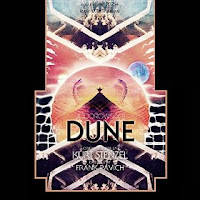My wife had been routinely active that day taking a walk and working in the garden. As most women report at that stage of the pregnancy, she was quite tired of being pregnant. That evening, in a somewhat casual attempt to get things started, she proposed that we go out to eat some spicy Thai food. Soon thereafter, she started to report some “cramps.”
Now, I would not say that I was dismissive of her complaints, but I was skeptical. In my defense, she had been having “cramps” in various forms for the better part of six months, so I was not ready to pack up for the hospital at the first sign of discomfort. When we got home, I realized that we needed dog food, so after P was down for the night I ran to the neighborhood grocery store. By the time I got back, I knew my wife was serious. Normally, such an excursion would be a reason for her to wind down for the evening. She had, instead, taken a shower, put on fresh clothes, packed three bags, and was waiting by the door with shoes on.
Still, I was skeptical. I really did not want to go to the hospital and get sent back home on a false alarm. I suggested we sit down and watch TV for a little while to track timing of the “cramps” on an app she had downloaded. Within ten minutes, she was on all fours.
I scooped up P and we left.
We were in new territory. We had never actually gone through labor and delivery. P was induced and ultimately delivered by c-section, and whatever emotional support tools I had were all informed by that experience. Looking back on P's birth, my wife was, at one point, exhausted and terrified, and I remember feeling helpless to soothe her fears. A few weeks before EJ's due date, I decided to come prepared if we found ourselves in a similar situation this time around.
Frank Herbert’s Dune had been on my mind recently due to the release of the soundtrack to Jodorowsky’s Dune, a documentary about an imaginative 70s movie adaptation of the sci-fi classic that stalled in preproduction. I will admit that I have yet to see the documentary itself, but the descriptions I read of the soundtrack’s explicit deference to 70s synth composers like Tangerine Dream and Jean-Michel Jarre piqued my interest. A Dune-themed synth album seemed intriguing, especially since I have a somewhat unfulfilled sense of musical nostalgia for the Dune universe.
Unfulfilled because no adaptation, and therefore no soundtrack, has ever done the book justice. I still say that Dune is impossible to do in a traditional film format. The Sci-Fi channel had the right idea at one point, however, by making it a visually disappointing mini-series. It seems like with all the world-building that is going on right now in cinema and current effects, Dune is a deep, deep property that is just waiting for someone to pick up and develop properly. For now, though, Dune fans have to satisfy ourselves with morsels like Kurt Stenzel's soundtrack for this documentary.
The results are varied. Despite having a certain meandering feel, Jodorowsky’s Dune OST does do a convincing job of capturing something that is unique to the Dune universe. In that regard, it might be one of the better Dune-related musical offerings in existence. Despite this, however, it is not the soundtrack to a Dune movie, but rather the soundtrack to a documentary about a Dune movie. This is a little less appealing to my inner vision of the music’s narrative. I might be able to function under the delusion that this is not the case, pretending that it is the actual unreleased soundtrack. There are several instances, however, in which the inclusion of quotes from the documentary shatter the illusion. Still, these are few and far between, and for the most part, the soundtrack is pretty compelling.
As it turned out out she did not need it at all. Not to say that EJ's birth was easy or without some hard moments, but my wife was a total rock star during the whole thing. To be frank, I think I needed the Litany more than she did. I recited it during labor and delivery, arguably to be prepared for when she might need support. It actually gave my racing mind something to focus on in quieter moments. And yes, these are words that come from a 60s sci-fi novel, and using them in a real-world way such as this might seem ridiculous. They elegantly describe a profound aspect of the human condition, however, in the way that only the best sci-fi is able.


